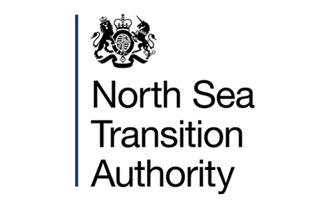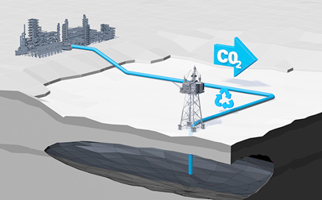
The Oil and Gas Authority (OGA) is publishing two reports today, the “UKCS Technology Insights” and the “SNS Salting Study” which highlight ongoing industry work and future plans on critical technologies to maximise economic recovery of UKCS hydrocarbon resources (MER UK).
‘UKCS Technology Insights’ offers a unique insight into companies' technology portfolios, including strategies to access further required technologies for MER UK. This study is based on the technology plans which have been submitted to the OGA by UKCS operators, for the first time as part of last year’s Stewardship Survey.
Dr Andy Samuel, chief executive of the OGA said: “It’s great to see operators putting technology plans in place and working with the Oil and Gas Technology Centre and others to develop the vital technologies they need to maximise economic recovery from their assets. For the first time for the OGA, this study provides a valuable insight and analysis of what’s happening on the technology front. It highlights where research and development is being focused and underlines the central role the supply chain is playing in delivering innovation.”
The study of over 60 UKCS operators’ technology plans revealed:
- A total of over 300 technologies reported, covering the entire asset lifecycle, from seismic to asset management and decommissioning
- Perceived need for innovative solutions, with over 45% of the technologies listed under development and not yet fully tested
- However, reluctance by the majority of UKCS operators (70%) to adopt technologies for which there is still insufficient experience in our basin
- In total, UKCS operators spent £185m on Research and Development (R&D) and field pilots in 2016, a decline of 35% from before the oil price crisis
- Only a small group of ‘leading’ operators (11% of respondents) accounted for 85% of this technology spend, with another 70% of operators, instead, not investing in R&D and entirely reliant on the supply chain for their technology needs
The comparison of individual operators’ plans showed that many existing technologies could be more widely adopted, and that more collaboration among operators on developing novel technologies of common interest is possible.
Carlo Procaccini, head of Technology of the OGA said: “The results of this study will allow the OGA to effectively engage operators, as part of the Asset Stewardship process, on opportunities to deploy the best technologies for MER UK.”
Colette Cohen, CEO of the Oil and Gas Technology Centre said: “The OGA’s UKCS Technology Insights report is a step change in creating a culture of transparency around the technology activities and technology development needs of the UKCS industry. This new report with its comprehensive analysis of the current UKCS technology landscape allows technology organisations such as the OGTC to enhance our roadmaps and align our activities directly to both the MER UK agenda and the industries current technology priorities.”
Steve Garrett, manager, UK Global Technology Centre, Chevron said: “The consolidated operator technology report is very insightful and firmly puts the UKCS ahead in having a current and clear landscape of operator’s application of technology to the industry, differentiated globally both in scope and detail.”
Dave Lynch, BP North Sea, vice president Reservoir Development and member of the Technology Leadership Board (TLB), said: “The role technology plays in our industry is more critical than ever, particularly as we seek to maximise economic recovery in a rapidly-changing and fast-paced digital landscape. BP, like all North Sea operators, needs to constantly improve how we apply technology to keep pace and deliver MER UK. The OGA’s Technology Insights report is a timely and important addition to helping achieve this.”
In the “SNS Salting Study”, the OGA recommends that gas operators in the Southern North Sea (SNS) work together to reduce the impact of salting on production losses, following a study conducted in 2017.
Production losses can occur when salt deposits build up within the wellbore or the process plant, causing restrictions in flow and in extreme cases blockage. The report finds:
- SNS production efficiency (PE) is estimated at 64%, which is the lowest of the UKCS areas (according to the OGA’s 2016 UKCS Stewardship Survey)
- Daily production losses attributable to salting total 130 mmscf/d, equivalent to 20% of the SNS’s total production losses
- At least one fifth of all producing fields in the SNS are likely to be affected by salt deposition
Eric Marston, Southern North Sea and East Irish Sea area manager, OGA said: “The SNS Salting Study is a great example of how the OGA is able to draw deep insights from our interactions with operators. In turn, we are able to use these insights to provide guidance on the collaborative measures that might be taken by industry to improve performance.”
Simon Gray, chief executive of EEEGR said: “‘EEEGR is delighted to be able to support this initiative through our Southern North Sea Rejuvenation Special Interest Group. With the support of the OGA and OGUK, a Salting Work Group has been formed under the leadership of Faroe Petroleum. In due course, the work group aims to publish a guidance document along with case studies on salt management.”
Ends
Notes to editors:
UKCS Technology Insights
- Technology Insights is available here.
- 63 operators submitted their Technology Plans as part of the 2016 UK Continental Shelf (UKCS) Stewardship Survey.
- This OGA report contains the aggregated information from the technology plans, to highlight areas where critical technologies could be more widely adopted and collaboration opportunities in the development and piloting of novel solutions
SNS Salting Study
- The SNS Salting Study is available here.
- Data were collected by the OGA from seven SNS operators who have either direct experience of salting and salt management, or anticipate salt formation and deposition at a future point in the lifecycle of their facilities.
- EEEGR is the industry association for energy in the East of England, representing over 350 members across the supply chain. It is a non-profit, business-led group committed to the sustained development of the energy sector in the region and the continued success of its members.
For more information, please contact Tracey Miller, communications manager at the OGA:
Tel: 0300 020 1072 ¦ Email: Tracey.Miller@nstauthority.co.uk


